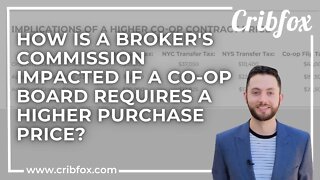Condo vs. Co-op in NYC: What's Best for You?
Save 2% When Buying in NYC: https://www.hauseit.com/buyer-closing-credit/
NYC Buyer Closing Cost Calculator: https://www.hauseit.com/closing-cost-calculator-for-buyer-nyc/
Condo vs. Co-op in NYC: https://www.hauseit.com/co-op-vs-condo-nyc/
Email Us: team@hauseit.com
The topic of condos vs coops in New York City real estate is one of the most debated topics in the city. Both condos and co-ops have different considerations when it comes to the initial purchase, lifestyle when you're in the property as well as the various costs associated when buying and selling.
In this video, we will be talking about specific differences between a condo and a coop both when you're purchasing, when you're living in the unit and when you're selling.
This is Nick from Hauseit. If you have any questions about today's video or if you have any ideas for topics give us a shout, you can contact us via email: team@hauseit.com
Now back to the topic of condos vs coops. The most important consideration when you're thinking about what property type to buy in New York City really comes down to the cost. The main benefit of buying a coop apartment is in fact the actual purchase price can be anywhere from 10 to 40% less expensive than what you would pay for comparable condominium in New York City.
Now the reason for that is there are more cooperative buildings in the city vs. condos. The supply demand dynamic dictates that the prices should be lower for coop apartments. The other reason why coops are less expensive is due to the various rules and restrictions associated with owning a coop apartment. Specifically when you purchase a coop, you must submit an application to the board of managers, and the cooperative board has the complete discretion as to whether or not to approve your purchase.
It's this additional quirk in the purchase process that is not the same thing as you would have in a condominium and it makes coop slightly less attractive to investors as well as people who don't necessarily want to go through such an exercise when buying an apartment.
So the buyer base for coops is also smaller. You don't have investors. You really only have people to intend on living in New York City for the foreseeable future. Another reason why co-ops are less expensive is because they have various rules and additional cost associated with subletting. More specifically, the coop has the authority to approve or deny any perspective tenant for your coop apartment. What this means is that it's not necessarily going to be automatically approved if you submit an application for somebody to rent your apartment.
Furthermore, co-ops also have outright restrictions on how often you can sublet your apartment. The most common coop sublet policy in New York City permits subletting for 2 out of every 5 years usually with the additional requirement that you initially occupy the unit for at least 2 to 3 years.
Coops do exist that permit unlimited subletting and investors do consider purchasing those types of units, but they are far less common and it is much riskier as an investor to purchase a coop compared to a standard condominium.
Now you maybe thinking: so if I buy a condo, I have to pay more money. What's the benefit? Well the benefits are numerous. Number one the condominium board, while they will require that you submit an application in most cases, they cannot reject your offer to purchase the apartment. Unless the condo corporation itself actually purchases the unit instead of you at the same price. The condo generally also has minimal restrictions on renting, if any.
The condo board cannot reject your applicant for the rental and generally speaking condominiums have slightly lower fees and fewer restrictions surrounding renting as a whole. While a condo may indeed have restrictions on renting, they're usually fairly minor and most of the restrictions in condominiums in New York City are pertaining to the very short term sublets such as Airbnb.
Most condo buildings do prohibit short term sublets. Anything less than 30 days i usually prohibited and in some cases for a larger condo buildings there maybe outright restrictions on the lease term. They will not permit anything shorter than 1 year. So the take away is that a coop is a much less flexible form of ownership but it's a less expensive property. If your budget is $800k and you need a 2 bedroom, it's more likely going to be a co-op.
The other benefit of buying a coop as opposed to a condo is that there are lower buyer closing cost associated to the purchase of a coop.
NYC Buyer Closing Cost Calculator: https://www.hauseit.com/closing-cost-calculator-for-buyer-nyc/
Save 2% When Buying in NYC: https://www.hauseit.com/buyer-closing-credit/
.
.
Hauseit LLC, Licensed Real Estate Broker
Tel: (888) 494-8258 | https://www.hauseit.com
_
#hauseit #hauseitnyc
-
 3:38
3:38
hauseit
4 years agoCondo vs. Apartment in NYC: How Different Are They?
23 -
 7:21
7:21
hauseit
4 years agoQuestions to Ask Before Buying a Co-op in NYC
89 -
 0:05
0:05
DerekPretlowIII
2 months agoWhat you need for the co-op board approval process in New York City
11 -
 5:49
5:49
cribfox
1 year agoHow Is a Broker's Commission Impacted if a Co-op Board Requires a Higher Purchase Price?
15 -
 7:36
7:36
Selling Boston & the Burbs by Jeffrey Chubb
3 years agoIs buying a condo different then buying a Single Family? Things to know when buying a condo.
60 -
 0:59
0:59
Anthony Johnson
10 months agoWhat is a condo special assessment?
5 -
 9:26
9:26
Arizona Real Estate
1 year ago $0.01 earnedLiving in Arizona | Condos PROS & CONS | Arizona Real Estate
16 -
 1:27
1:27
Selling Boston & the Burbs by Jeffrey Chubb
3 years agoHow Can I Make My Offer More Competitive - Closing on the Seller's Preferred Closing Date
2 -
 6:27
6:27
REtipster
1 year agoLand Agent vs Land Broker: Which Is Better? With Adam Mikesch
6 -
 0:28
0:28
HomerWarren
1 year agoHow To Choose The Best Condo
6